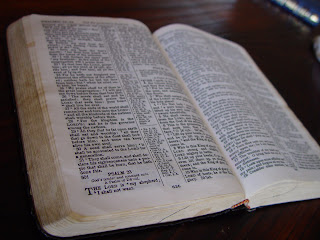Revelation 4:1 - 7:17
What is your image of God?
The God who speaks the universe into existence?
The God who walks in the garden in the evening breeze?
The God who bargains with Abraham over the lives of the people of Sodom?
Or the God of the burning bush?
Or the God who liberates his people from slavery?
Or the God who writes laws on tablets of stone?
Perhaps the God who smacks down the priests of Baal?
Or the God who wants us to do justice, love mercy, and walk humbly with him?
Or God the tender shepherd who leads us by still waters?
Or God as a mother who cannot forget her child?
Or God as Sophia, Holy Wisdom?
Or God in Jesus, the compassionate one?
Or God in the Holy Spirit, the inspiring one?
Writing, and reading, these descriptions underline how impossible it is to put "God" into human language. God is all of that and so much more. We have no idea how great is our God.
Now in the beginning of our reading today we see a description that just blows our socks off.
The seer, John, is transported to heaven and sees a throne, with one seated on the throne. What does the One look like? "Like
jasper and
carnelian [gemstones] and around the throne is a rainbow that looks like an emerald." Did you ever imagine God to look like gemstones?
 |
| Throne of Heaven |
Some of the imagery is drawn from
Ezekiel, another vision-laden prophetic book. It leaves no doubt of God's sovereignty over the universe.
Then we encounter the Lamb. Quoting Raymond Brown: "The Lamb, which stands as though slain, is identified as the Lion of the tribe of Judah, the Root of David, who has conquered. (Clearly here paradoxical symbolism outstrips descriptive logic.)"
 |
| Lamb on ceiling at Vatican |
The vision is of the Creator and the Redeemer.
Notably in this vision the other inhabitants recognize in Whose presence they are, and engage in continuous songs of praise and worship.
The Lamb now takes the Scroll with the seven seals, and begins to open them.
 |
| Scroll with seven seals |
The first four seals reveal the famous four horsemen of the Apocalypse:
 |
| Four Horsemen: Conquest, Bloody Strife, Famine, Pestilence |
The equine vision is loosely derived from two passages in Zechariah (
here and
here), but may also represent contemporary issues.
The fifth seal reveals the souls of martyrs, possibly those killed in the persecutions by the Emperor Nero during the 60's.
The sixth seal reveals cosmic disturbances such as earthquakes, storms, lunar eclipses and other events seen as God's judgment on the earth. We now recognize such events as the natural consequences of an earth with tectonic plates, a usually but not always benign atmosphere, and a satellite revolving around it. So last week's earthquake and hurricane here on the eastern seaboard were not the sign of the end of the world (I hope).
Before we get to the seventh seal, our seer, John, shares his vision of protection given to 144,000 "servants of God" by being sealed on their foreheads. And then there was an uncountable multitude standing before the throne and before the Lamb, singing and worshiping God.
This reading ends with the joy of those who "have washed their robes and made them white in the blood of the Lamb" -- all those in the presence of God:
15 For this reason they are before the throne of God,
and worship him day and night within his temple,
and the one who is seated on the throne will shelter them.
16 They will hunger no more, and thirst no more;
the sun will not strike them,
nor any scorching heat;
17 for the Lamb at the centre of the throne will be their shepherd,
and he will guide them to springs of the water of life,
and God will wipe away every tear from their eyes.



































